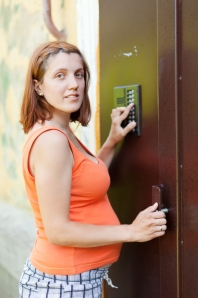 Most condominium owners know that they own their units “fee simple” which is kind of like owning a single family home attached to other single family homes. What you do within your own “four walls” is your business and nobody else’s (unless you are making excessive noise, disregarding usage rules, etc.)
Most condominium owners know that they own their units “fee simple” which is kind of like owning a single family home attached to other single family homes. What you do within your own “four walls” is your business and nobody else’s (unless you are making excessive noise, disregarding usage rules, etc.)
Most condominiums also have at least 2 stories which means that there are upstairs and downstairs neighbors for everyone. Depending upon whether you are on the ground floor, top floor or somewhere in between, it’s important to be aware or the effect your actions can have on your neighbors.
If you have a unit directly below you, common courtesy dictates that you not be excessively noisy – especially on wood, tile or laminate flooring – since sound travels more than most people realize. High heels on uncarpeted floors, even pets (and kids) racing down hallways can become very annoying without you even realizing it.
You also need to be aware that leaks from an overflowing sink, tub or shower or even a leaking hot water tank can go down several floors beneath you and cause a great deal of damage for which you will be held responsible.
Another issue can be with toilets or kitchen sink disposals being overloaded and causing leaks of whatever went into the toilet or disposal that can damage the pipes and get into units below.
Condominium living is really an exercise in common courtesy as well as common sense so everyone can enjoy their home equally!
“Condominium Living is a Special Way of Life – Condominium Marketing is My Specialty!”
© Anna Novikoff 2016

 Q: What Size Is Your Condo Unit?
Q: What Size Is Your Condo Unit? So you’ve decided that it’s time to sell your condominium home because you’ve heard that there might be a Special Assessment in the works. Now, if you can just get it sold before the assessment is due!
So you’ve decided that it’s time to sell your condominium home because you’ve heard that there might be a Special Assessment in the works. Now, if you can just get it sold before the assessment is due!